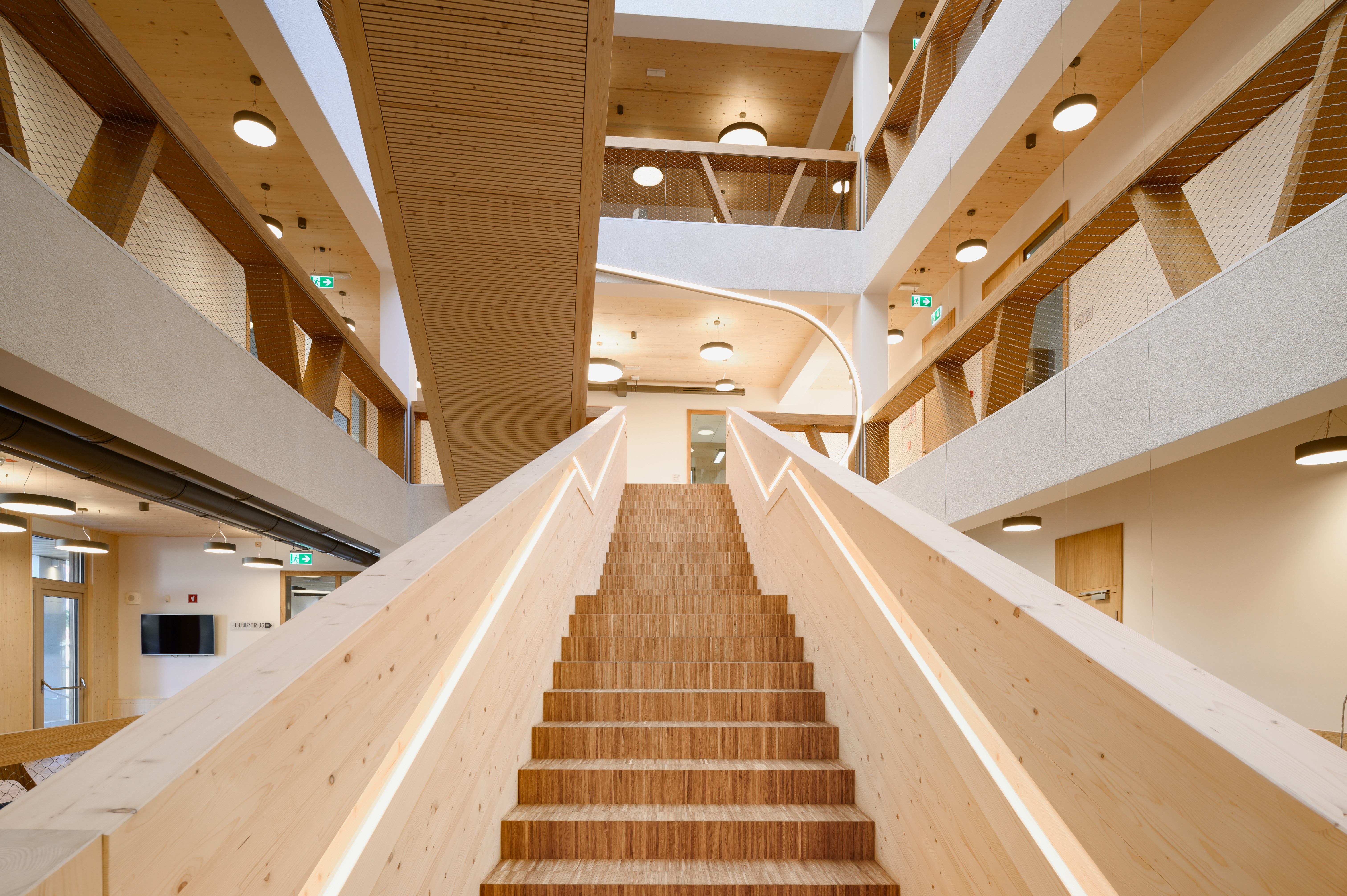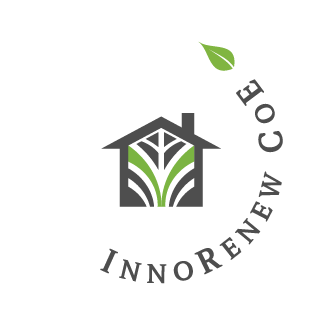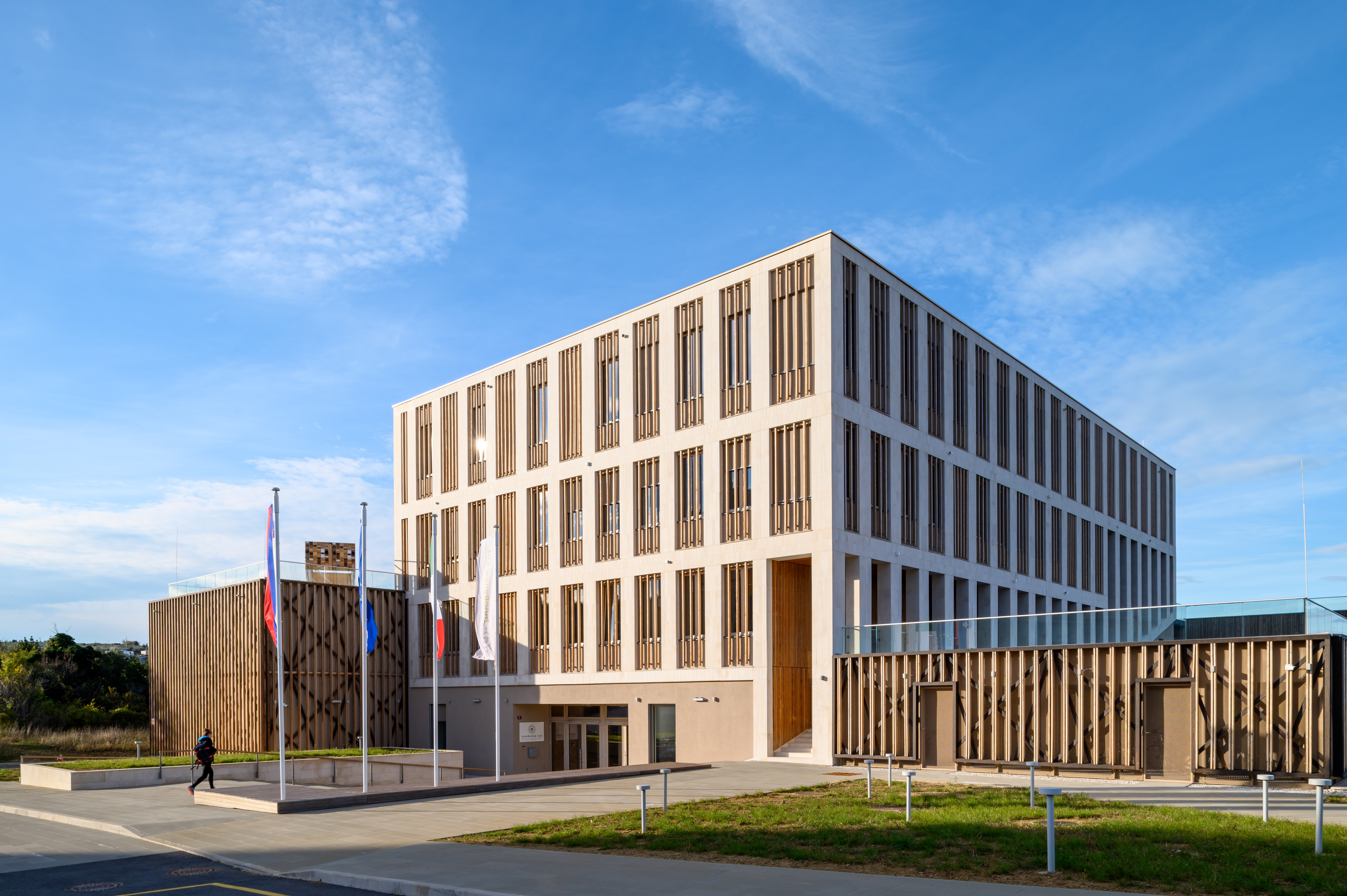
- PROJECT CODE: BI-US/22-24-153
- PROJECT TITLE: Decentralized communities for building monitoring
- PROJECT TEAM: Michael Mrissa, PhD (leader), Laszlo Hajdu, Aleksandar Tošić, Balazs David, Niki Hrovatin
- PERIOD: 01.07.2022 – 30.06.2024
- BUDGET: €3,000.00
- FINANCING: ARRS
- COORDINATOR: InnoRenew CoE
- PARTNER: Oregon State University
Structural health monitoring (SHM) is an essential tool to document the behavior of mass timber buildings. Web technologies and low-cost sensors enable collecting, analyzing and learning about timber buildings in different locations from their data. This project will develop a methodological framework to realize the data’s potential.
The project objectives are:
- to define and predict lifecycle activities, decisions on which they depend and the information required to support these decisions and the organizations in charge of them;
- to identify requirements and characteristics of an information management framework (IMF) to ensure that (federated) monitoring data can provide needed information at the right time, to the right people, with high-quality insights; and
- to define monitoring/measurement methodology/strategy that will provide the data with sufficient granularity in location and time for further use in the IMF.
This project builds on web-based autonomous and collaborative agents called avatars that provide virtual abstractions to act as an IMF and support the digital representation of buildings and their elements. Well-known problems related to data integration, data collection and lifecycle analysis will be tackled.
InnoRenew CoE project activities
InnoRenew CoE will design the decentralized system that supports the federation of smart buildings and enables relevant data exchange about their monitored conditions. Researchers will design the mathematical models that support interoperation between buildings across countries and local influences to accurately predict building conditions and alerts.



